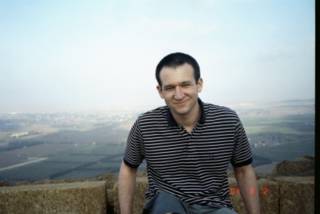Lee Bollinger, Academic Freedom, and Me (Part 1)
Wednesday night, I attended the Cardozo Lecture at the New York City Bar Association. The lecture, on the subject of academic freedom was delivered by embattled Columbia President Lee Bollinger, whose institution is presently at the center of a controversy over whether certain professors in Columbia's Middle East, Asian Languages and Cultures Department, particularly those teaching courses on the Palestinian-Israeli conflict, have intimidated students who have offered points of view contrary to their own.This controversy is of great importance for three reasons.
There are three large questions that go beyond the scope of the allegations made against Joseph Massad, George Saliba, Hamid Dabashi, and a number of others.
The first is the role of the professor in the classroom. Lee Bollinger's enduring contribution to the definition of academic freedom and what it means in the classroom will be his concept of professional scholarship, which he defines as the ability to examine the entire complexity of an issue, to truly open one's mind to all possible points of view. In the classroom, Bollinger posited that the best teachers were the ones who fostered this same appreciation of intellectual pursuit in their students, not necessarily by failing to take a point of view, but by creating an atmosphere where divergent views may flourish. Promoting a political point of view in the classroom should be handled with the greatest amount of care, and should, in my humble opinion, be uttered with an exposition of the possible counterarguments. Indeed, this is what every reputable social science professor expects from his students' papers - not just an position, but a critical examination of that position and alternatives to that position.
Professors who are able to accomplish this ideal in the social sciences without putting their students to sleep are few and far between. One reason is that the passion students hope for from classroom professors is often a byproduct of the strong ideological viewpoints held by those professors. (I had only one professor at Vassar who met this ideal completely, Andy Bush, though many came admirably close, such as Wilfred Rumble, and perhaps most admirably, Andy Davison, who teaches Middle Eastern studies classes at Vassar. I mention Andy Davison because I think he has the greatest challenge given the subject, and I know he spent and spends an enormous amount of time preparing his classes.) Professors who are able to stay objective seem too often to sound about as exciting as a C-Span lecture on endangered fish.
The ideal professor is one who stays objective while teaching with passion.
Part two of the controversy will be in the next post.


2 Comments:
Most of my ME professors are wonderful in their ability to promote diversity of views in the classroom. As for Bollinger, he's clearly talking out of both sides of his mouth, otherwise he would have agreed to an independent committee. He can't possibly be unaware of the happenings in his own university.
Lee Bollinger should be fired.
Was Lee Bollinger's uncouth, stark and vulgar behavior an example of what to expect from graduates of The School of International and Public Affairs Columbia University?
Post a Comment
<< Home